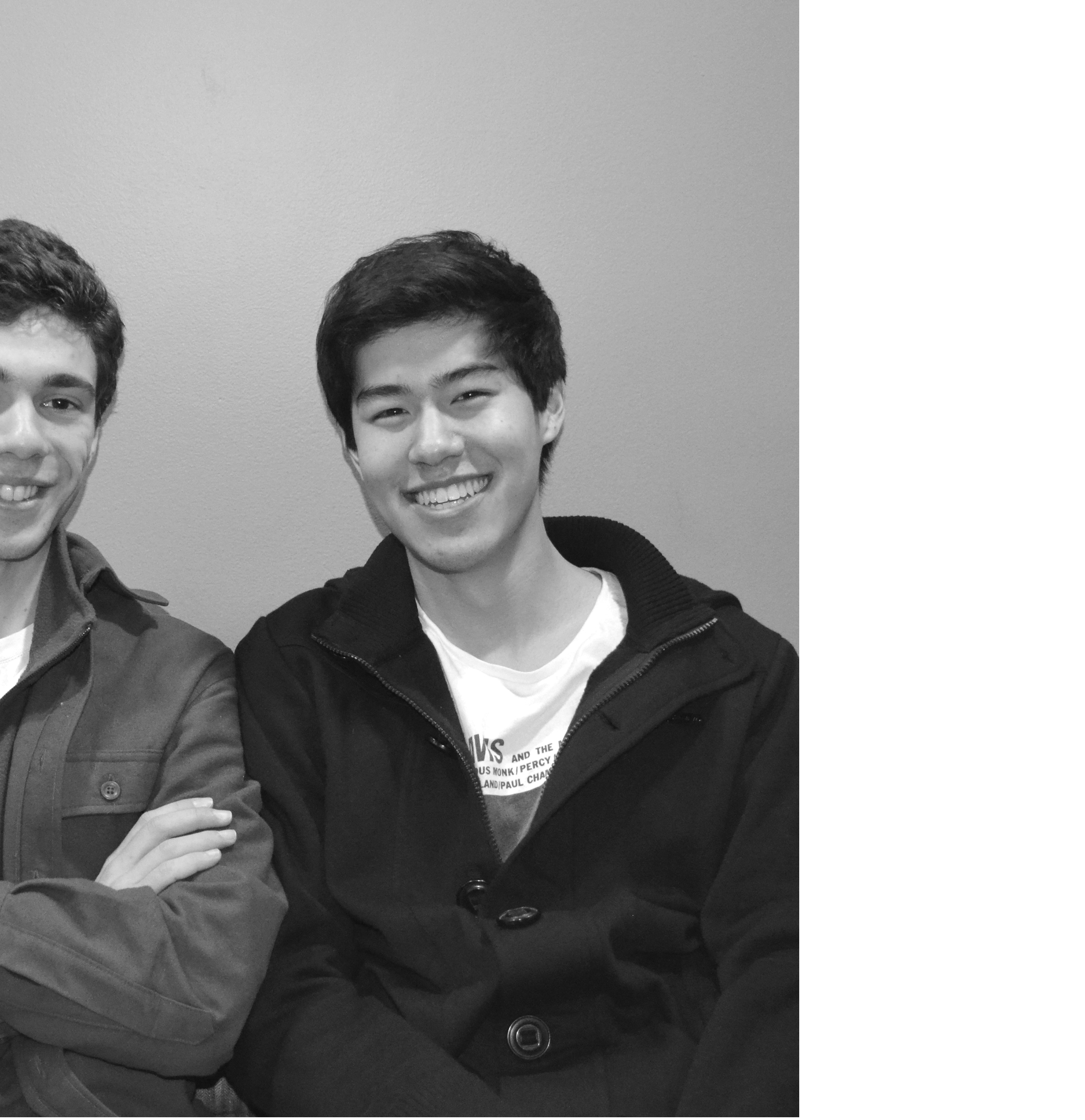

Major: Music
Advisors: David Schneider (academic advisor), Mark Swanson (instrumental advisor), Mallorie Chernin (choral advisor)
Q: What is your thesis about?
JHS: Luca and I are doing a joint choral and conducting thesis, in which we are each conducting a 20-person choir as well as a small-size orchestra.
LA: Jordan is conducting Barber’s “Knoxville: Summer of 1915” and I am conducting Copland’s “Appalachian Spring.” In addition to the orchestral repertoire, we are both conducting choral pieces by Barber, Copland and other American composers.
Q: What inspired you to choose this topic for the thesis?
JHS: A lot of it boiled down to having the resources to do the right repertoire. Barber’s “Knoxville” and “Appalachian Spring” are pieces for chamber orchestra, which means they do not require too many musicians.
LA: Personally, I think Copland is an interesting composer because he went through many stylistic changes. Also, he is one of the most famous American composers, yet people do not know a lot of his pieces, so I thought it would be wonderful to share his choral pieces. “Appalachian Spring,” as Jordan mentioned, does not require many players, and it is a fun piece that I have always wanted to conduct.
JHS: And the composers share a theme of American sound, which is interesting to look at because American music was emerging at a time when the country wanted to distance itself from Europe. Especially in Barber’s “Knoxville” and Copland’s “Appalachian Spring,” you can see how the composers are trying to pioneer this unique American sound.
Q: What compelled you to do a music performance instead of a written thesis?
LA: I enjoy performances, and since I hope to become a professional conductor, this was the perfect opportunity.
JHS: For me, this was a unique opportunity because when am I ever going to be able to conduct a bunch of talented singers, who are willing to give up an hour of their time every week for my performance? Also, the Amherst music department has been incredibly supportive. Even though I will pursue music history in graduate school, I wanted to take the chance to carry out a performance project in this ideal environment.
Q: What are some challenges for organizing a performance thesis instead of writing a thesis?
LA: Figuring out the logistics! First of all, getting the players and planning rehearsals are difficult. Some people are away during Interterm, some musicians are from UMass, others work during the day, etc. — we have learned to become flexible because we have to accommodate our musicians’ schedules. Another issue is when we are hiring people, we need to figure out how much money we can spend and how many players we can hire. Finding rehearsal space is a pain, too.
JHS: I agree with Luca — I didn’t anticipate how difficult it would be to logistically pull everything together. I thought most of my thesis would be about music, but a lot of it involves applying for funding, finding musicians for the performance, and planning the rehearsals. The logistics part of the thesis has been very time consuming. Also, there have been some things that are intimidating during the process. For instance, I am coaching a singer who is currently working on her Ph.D., and it has been somewhat overwhelming to help a musician who already has a lot of knowledge about her field. It is a true learning experience, figuring out how to work with people and be in the position of authority as a conductor.
Q: Do you have any advice for future music students who may consider a music performance as his or her senior thesis?
LA: Dive into it knowing that you spend a huge amount of time writing e-mails, making phone calls and chasing people down for rehearsals. It is extremely important to stay on top of the logistical side of a performance thesis.
Q: When can Amherst and other community members watch the performance?
JHS: Everyone should come to the performance, which will be on Jan. 25 at 7 p.m. in Buckley Recital Hall!